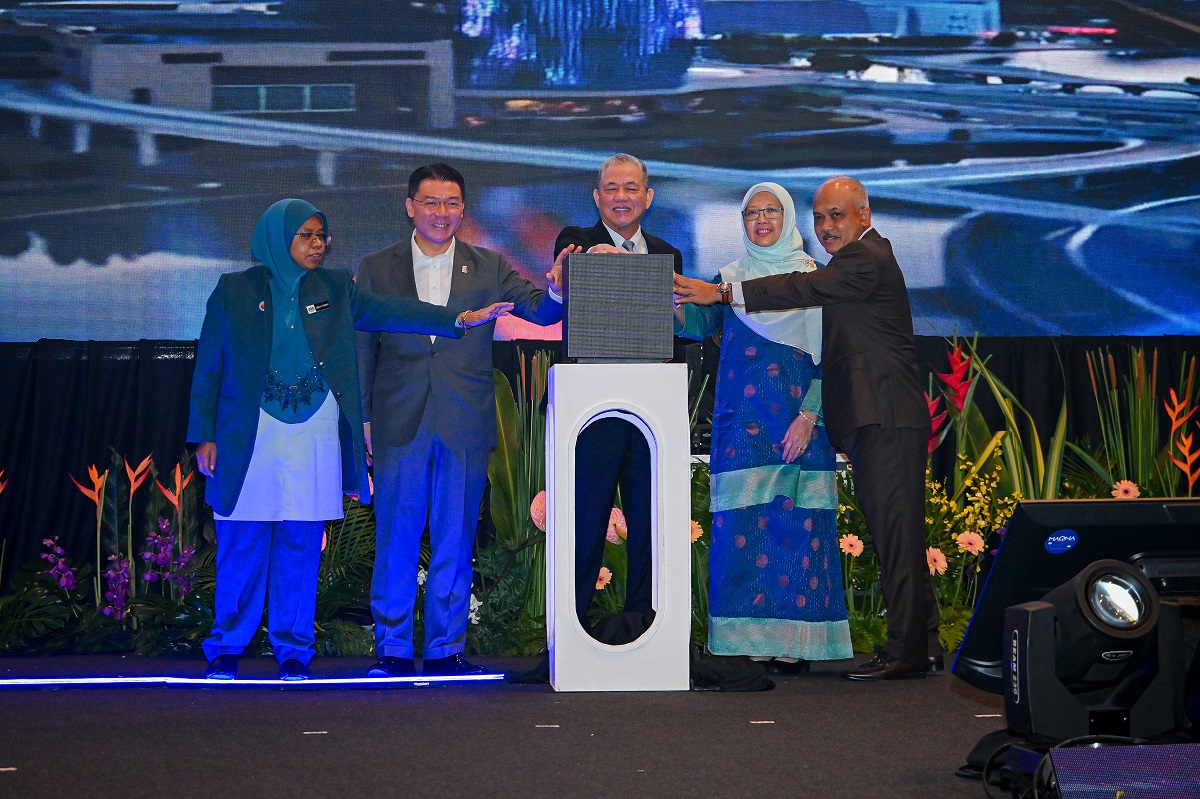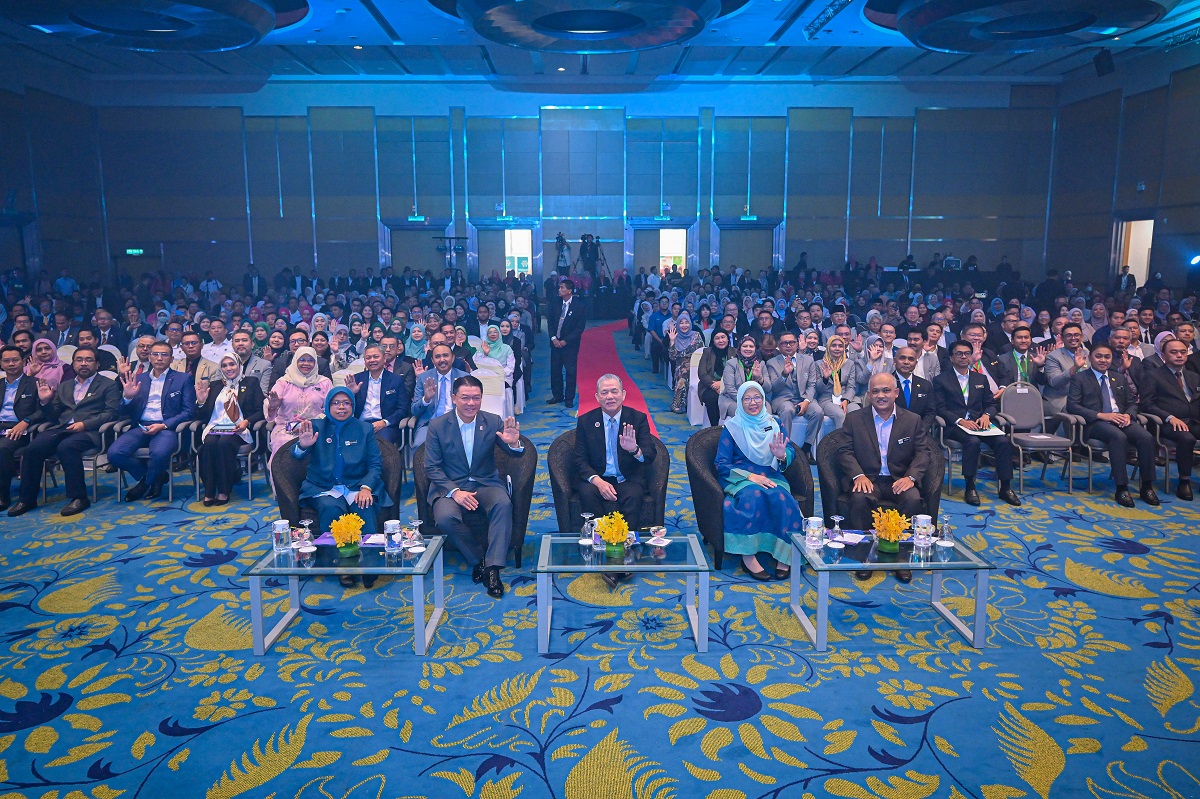
- “Technology can make our systems more efficient, but only our values can make them humane,” said Zaliha.
PUTRAJAYA (Oct 29): Malaysia may be on the fast track towards artificial intelligence (AI) adoption, but real transformation is not just about technology. Instead, city planning should still focus on people.
Minister in the Prime Minister's Department (Federal Territories) Datuk Seri Dr Zaliha Mustafa said that while Malaysia has one of the highest AI adoption rates in the world, with 84% of knowledge workers already using AI tools at work compared to the global average of 75%, adoption alone does not equate transformation.
“Digital systems and predictive governance may help us solve urban problems. But we must ask ourselves: will AI by itself solve all our challenges, or will it only compel us to re-examine our values, our culture, and our purpose in city-building?” she said during the “AI for Cities: Planning, Predicting and Designing a Responsive Urban Future” session on the first day of the National Planning Congress (NPC) 2025, held at Kompleks Perbadanan Putrajaya on Tuesday.
Zaliha added that cities around the world have seen “empty smart cities”—impressive on paper but soulless in reality.
“AI can simulate compassion, but it cannot feel compassion. Technology must not replace the human element in planning and governance,” she stressed.
Zaliha said Malaysia’s Madani Urban Framework aims to ensure technology serves people, not the other way around. It is guided by six values: sustainability, prosperity, innovation, respect, progress, and compassion which she described as “moral guides for every urban decision we make”.
She also stressed that affordable housing must not only be functional but also dignified and beautiful.
“Technology can make our systems more efficient, but only our values can make them humane,” she added.
NPC 2025 is organised by the Malaysian Institute of Planners, with EdgeProp Malaysia as media partner. Over three days on Oct 28–30, it is set to bring together about 800 participants, including policymakers, urban planners, industry players, and community groups. Themed “AI Meets Urban Planning”, it discusses urban renewal, city planning, and the role of technology in building better, more liveable towns and cities.
The event, held in conjunction with the national celebration of the World Town Planning Day, which also includes the MyCITY Expo 2025 till Oct 31, was officiated by Deputy Prime Minister Datuk Seri Fadillah Yusof and attended by Housing and Local Government Minister Nga Kor Ming.
AI key to resilient and competitive cities
In his presentation, Selangor Menteri Besar Datuk Seri Amirudin Shari stated that housing affordability, infrastructure resilience, climate change, and digital gaps remain key urban challenges and that AI is central to tackling them.

“AI, Internet of Things (IoT) and digital twin technologies are not just buzzwords. They are strategic tools to build more competitive and resilient metropolitan ecosystems,” he said.
He added that Selangor, as Malaysia’s most advanced state, is systematically implementing its Smart Selangor Action Plan 2025, which includes digitalisation initiatives for urban mobility, water management, and spatial planning.
“To break silos, we introduced SelGDX, a data-exchange platform that allows local authorities and government-linked companies (GLCs) to share information seamlessly. This helps cut bureaucracy and improve decision-making,” he added.
Amirudin said the state has also launched a five-year collaboration with Google to build AI-ready human capital within the civil service.
“We want our officers to work with artificial intelligence, not be replaced by it,” he said.
Focus on execution, not just policy
Kuala Lumpur Mayor Datuk Seri Maimunah Mohd Sharif stated that Malaysia must move beyond drafting policies and focus on executing them effectively, especially in urban sustainability and climate action.
“We already have plans for low-carbon cities and climate resilience, but what’s next?
“We need to translate policy into impact and strategy into action, as implementation should now take precedence over studies,” she said during the “Making Cities Work: From the Eyes of Town Planner” session.
Maimunah added that building smart and sustainable cities requires more than technology; it demands capable people, leadership, and good governance.
“Smart City isn’t just about the place; it’s about whether we have the right people to implement it. Leadership, capacity and integrity are essential,” she said.
She also pointed out that urban planning must consider not only physical infrastructure but also the emotional and social wellbeing of communities.
“Planners must create enabling environments for everyone’s progress, not be the ‘frustrator’,” she said.
Kampung Baru must grow without losing its soul
On the development of Kampung Baru, KL, Perbadanan Pembangunan Kampong Bharu (PKB) CEO Dr Khairul Nizam Othman said the challenge in developing Kampung Baru lies in balancing modernisation with the preservation of its heritage and authenticity.
“If you look at Singapore, their development zones are small, about 300 hectares, yet highly efficient. But here, even small areas expand rapidly. Kampung Baru must not lose its soul in the rush for progress,” he said.
He added that although Kampung Baru is zoned as a commercial area, the real value of its land lies in its cultural and emotional significance.
“The buildings may appear modest, but they carry deep historical value for the Malay community,” he said.
He stressed that future development in Kampung Baru will be gradual and measured.
“We must ensure that as the area grows, its cultural roots and architectural heritage are not erased,” he said.
As Penang girds itself towards the last lap of its Penang2030 vision, check out how the residential segment is keeping pace in EdgeProp’s special report: PENANG Investing Towards 2030.






